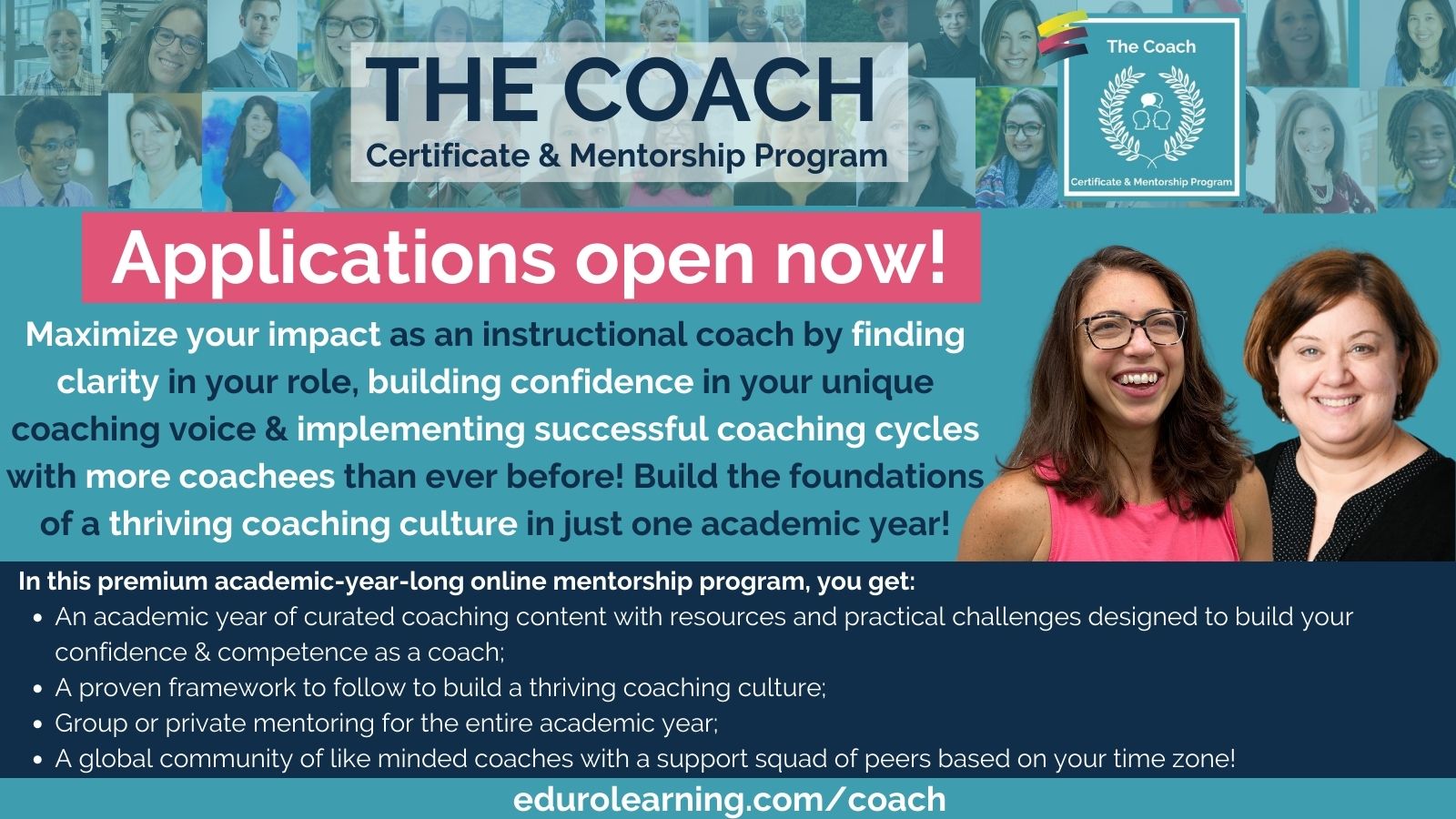We want to give you a peek inside our Coach Certificate & Mentorship Program. Coaches taking part in this academic-year-long journey have graciously given us permission to post some of their learning and reflections from the private coursework they are undertaking during this program. Where possible, we have shared the course and the action task to give context for the guest post.
The Topic: Working with Adults and Teams
The Task: Share your thoughts about your experience working with adults.
Think back to your early days working with adults. What do you know now that you would have done differently then?
In my early days of working with adults, I wish I knew that adult learners have a problem-centered orientation to learning. It can be frustrating starting out as a tech integration coach to be called on only when there is a problem. I now know that these problems are learning opportunities for adults and a chance to develop or strengthen a relationship with a colleague.
How are you building on your understanding of adult learning theory in your current work?
I have been reflecting on balancing the adult learners’ desire to learn, my own ideas for the adult to integrate technology, and the school-aligned goals. When studying coaching principles and practices it’s easy to focus on respecting the autonomy of the adult learner. However, in the workplace, it’s much more complicated than that. Many factors are at play. I think I have become more aware of my own bias and agenda when talking with my colleagues.
Previously I wasn’t recognizing the work I do informally or during unstructured time. In between planning meetings and co-teaching lessons, I often help community members with random issues and problems and generally chit-chat with people from all different parts of the school. This can easily be seen as passing the time and socializing. However, in a coaching role, this is building rapport with my colleagues increasing the probability that they will reach out in a time of need, problem-solving, or applying new ideas for integrating technology.
What strategies, processes, or approaches have been working well for you?
I have used grade-level office hours this year consistently and this has been working well. Teachers know when and where to find me, they can ask anything, talk about lesson integration ideas, or just say hi and check in. I have also tried to reduce the number of overall grade-level meetings, and only attend the Unit of Inquiry meetings and my office hours. This allows me to be available for co-teaching lessons and 1:1 meetings.
I feel this has been successful because it creates the space for me to get to know the adult learners better, share frustrations, and personal interests, and foster the feelings of safety, openness, love of learning, support, and collaboration.
Where do you have room to grow?
Some areas in which I have room to grow are creating better connections between learning opportunities and the school’s priorities. Asking for input from teachers, collecting and using data to help teachers make decisions about their learning, including surveys to assess their learning needs. When given the opportunity to facilitate larger learning sessions I need to remember to end the session with quiet reflection time to write and consider their key takeaways and possibilities for application in their practice.
Read more from The Coach participants as they share their learning from the certificate & mentorship program…
Karli’s post: In Practice: Post-Observation Conversation
Tracy’s post: Evaluating Your Coaching Program
Tracey’s post: Evaluating Your Coaching Program
Kelly’s post: Evaluating Your Coaching Program
Level Up Your Coaching with The Coach!
If you are ready to dive deep into your coaching practice, to help you #coachbetter and build a thriving coaching culture in your school, please join us for our next cohort of The Coach!
Wherever you are in building a coaching culture in your school, The Coach will give you the strategies, skills and tools you need to make coaching a success and will empower you to confidently apply instructional coaching strategies in any situation – from building a coaching program, to having coaching conversations, to being a leader in your school community. We facilitate only one cohort each academic year so we can offer individualized support for each participant.
Coaches of all levels are welcome: you’ll start the program with a self-assessment to determine exactly what the next steps are for you!


 Follow Kate
Follow Kate
Recent Comments